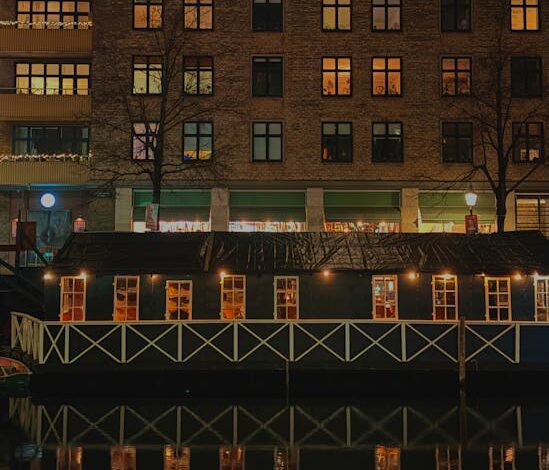The Ghost of Glory: A Midnight Confession

There are moments in life, usually quiet ones, when the grand narratives of fame and fortune peel away, revealing the raw human heart beneath. For a global icon like Lionel Messi, such moments are rare. Every move is scrutinized, every word amplified. Yet, in the dead of a recent night, under the cover of darkness, Messi did something profoundly, almost defiantly, human. He returned to Camp Nou, not for a match, not for a ceremony, but for himself. And in that hushed, almost sacred space, he confessed, with a vulnerability that resonated far beyond the confines of the empty stadium, that he missed it “with all his soul.”
It’s a phrase that cuts through the noise of transfer rumors, contract negotiations, and championship victories. “All his soul.” It speaks of an ache, a longing that money cannot buy and fame cannot fill. For anyone who has ever left a place that shaped them, a home where they truly belonged, the sentiment is instantly, utterly relatable. This wasn’t just a football player visiting a former workplace; this was a man returning to the very essence of his professional, and arguably personal, identity.
The Ghost of Glory: A Midnight Confession
Imagine the scene. The colossal stadium, usually a roaring cauldron of 99,000 voices, lies silent and still. The floodlights are off, the turnstiles locked, the vibrant banners that normally adorn its exterior are perhaps furled against the night air. And there, under a sky full of stars, is Lionel Messi. Not the dazzling forward weaving through defenders, not the captain lifting trophies, but simply Leo, perhaps wrapped in a coat, his breath visible in the cool air, walking through corridors that once echoed with his brilliance.
This wasn’t a PR stunt. It wasn’t leaked by his agent. It was, by all accounts, an unexpected, personal pilgrimage. Such a visit, made in secret, away from the glare of cameras, lends immense weight to his subsequent confession. It wasn’t something he said in a press conference or an interview, but a raw utterance, almost a whisper carried on the night wind. The authenticity of that declaration – “I miss this with all my soul” – is undeniable because it sprung from a moment of solitary contemplation, not public performance.
A Home Etched in Every Blade of Grass
For Messi, Camp Nou wasn’t just a stadium; it was his second home, the canvas for his masterpieces, the arena where he evolved from a prodigious talent to the undisputed GOAT. From the age of 13, Barcelona was his world. He grew up there, trained there, married there, and raised his children there. He spent over two decades crafting a legacy, scoring records that may never be broken, and defining an era of football with a singular, breathtaking artistry.
Every corner of that pitch, every changing room, every tunnel, every locker would hold a thousand memories for him. The roar of the crowd, the smell of freshly cut grass, the specific acoustics of a stadium filled with expectant hope and exploding joy – these sensory details become deeply ingrained when you’ve lived them for so long. To return to that space, now devoid of its usual energy, must have been a profoundly melancholic experience, akin to walking through a cherished, now empty, house.
More Than Just a Stadium: Camp Nou as a Repository of Self
What is it about certain places that imprint themselves so deeply on our psyche? For creatives, it might be the studio where their best work materialized. For entrepreneurs, the garage where their startup was born. For athletes, it is almost invariably the arena where they pushed the boundaries of human performance, where they tasted the sweetest victories and weathered the bitterest defeats. Camp Nou is more than just concrete and steel for Messi; it’s a living museum of his life’s work, a repository of his very self.
Think about the sheer volume of moments. His debut goal against Albacete, his Champions League triumphs, the countless El Clásico masterclasses, the indelible memories of his incredible dribbles and impossible finishes. These aren’t just statistics; they are vivid, emotional snapshots embedded within the very fabric of Camp Nou. Each stride he took on that turf contributed to the legend, and in turn, the legend became part of the stadium’s identity. They are inextricably linked.
The Universal Ache of Leaving Home
Messi’s unexpected visit and his heartfelt confession resonate because they tap into a universal human experience: the pain of leaving a place, or a chapter, that defined you. We all have our “Camp Nous”—the schools, the first jobs, the hometowns, the relationships—that shaped who we became. Even if we move on to new successes, there’s an almost primal ache for the familiar, for the roots we laid down, for the person we were in that specific context.
His departure from Barcelona was not on his terms, a fact that undoubtedly adds layers of complexity to his feelings. It wasn’t a graceful retirement or a planned transition; it was an abrupt, emotional wrenching away. This unfulfilled narrative, this sense of an unfinished symphony, would naturally draw him back to the source, seeking closure, or perhaps just a moment of quiet communion with the past.
The Unspoken Language of Return
A visit like this speaks volumes without uttering a single word. It acknowledges the depth of a connection that transcends club loyalty, salary caps, or even competitive ambition. It reveals that the heart of a football legend beats with the same sentimentality as any fan who looks back fondly on golden eras.
For Barcelona fans, Messi’s visit is a poignant reminder of what was lost, but perhaps also a flickering ember of hope. The emotional bond between Messi and the club’s supporters has always been reciprocal and profound. To know that the feeling is mutual, that their icon still carries Barcelona in his soul, offers a unique comfort. It validates their own enduring affection for him and for the memories he created.
What Does the Future Hold?
Does this secret nocturnal visit hint at anything more? Is it merely a sentimental journey, or could it be a prelude to a future role, perhaps off the pitch? Only time will tell. But for now, the image of Lionel Messi, standing alone in the silent immensity of Camp Nou, confessing his enduring love for it, serves as a powerful testament to the emotional bedrock of sport. It reminds us that behind the glitz and the glamour, the immense pressure and the colossal earnings, there is always a human being, capable of profound attachment and deep, undeniable nostalgia.
A Timeless Connection
Lionel Messi’s quiet return to Camp Nou, and his raw, heartfelt admission, offers us a rare glimpse behind the curtain of sporting superstardom. It’s a powerful narrative about belonging, identity, and the enduring power of a place that witnessed greatness. It tells us that even the most successful among us yearn for the soil where our dreams first took root, and that some bonds, forged in triumph and tempered by time, truly are eternal. His “soul” confession isn’t just a lament for a lost past; it’s a testament to a timeless connection, a reminder that the heart always knows where its true home lies.





